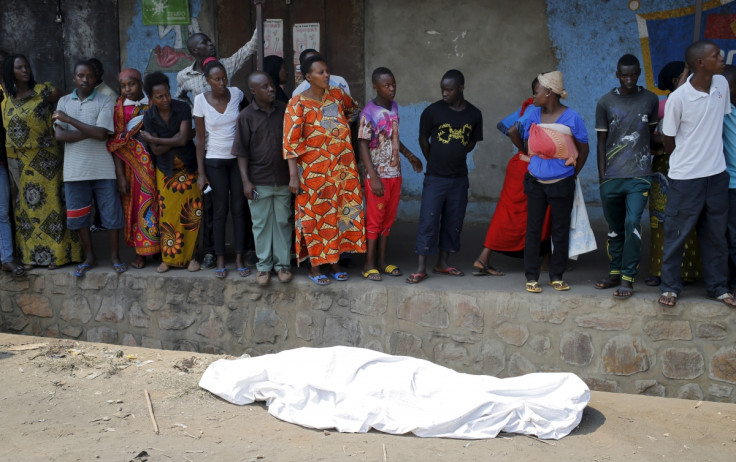Burundi: Government vows to cooperate with African Union investigation into human rights abuses

The Burundian government has vowed to cooperate with an African Union (AU) investigation but has slammed the bloc's threat of sanctions.
The Peace and Security Council (PSC) of the AU has announced it is launching an in-depth investigation on human rights violations and other abuses against civilians. It is also considering imposing targeted sanctions against Burundians who contribute to the perpetuation of violence.
In a meeting in Addis Ababa, Ethiopia, the AU asked the African Commission on Human and People's Rights (ACHPR) to "take urgent action to conduct investigation on human rights abuses" in Burundi and submit a report to the PSC within 45 days.
More than 60 people have died since April, when thousands of opposition protesters took to the streets, leading to a failed coup d'etat on 13 May against President Pierre Nkurunziza, but authorities have since been waging a severe crackdown on dissidents.
Cooperating with the human rights investigation
Alain Nyamitwe, Burundi's foreign minister, said Burundi was ready to cooperate with the AU's investigation but added sanctions do not resolve conflicts but rather exacerbate them.
"If you look around in Africa, you will not find one single crisis which has been resolved through sanctions. Even South Sudan, I remember the [PSC] has been saying let us not rush into sanctions because this is a very fragile situation which might be exacerbated in case we go the route of sanctions," Nyamitwe told VoA.
This comes two weeks after the European Union slapped sanctions on four Burundians accused of "undermining democracy".
Rejecting the claims that relationships between the embattled government and the rest of the AU bloc have been shattered, the minister said: "Let's always be sure about the news we disseminate. Avoid selling second-hand news. [We have] excellent relations with [the] AU."
The government added it had "never refused" to sign a memorandum of understanding with AU observers.
@iburundi @AU_PSD Le Gouvernement de la Rep. Burundi n'a JAMAIS refusé de signer Mou avec UA pour observateurs. AU sait très bien.
— alain aimé (@nyamitwe) October 18, 2015The PSC, meanwhile, urged the AU to accelerate and finalise contingency planning for a possible deployment of an African-led mission "to prevent violence".
'Colonising countries' behind the sanctions
Nyamitwe, whose brother Willy is Nkurunziza's adviser, also implied that the AU sanctions may have been dictated by external forces.
"There are efforts that have been carried out within the country (...) Now, they come with a hammer to impose a series of measures on Burundi, we are entitled to ask the question: does this decision really come from the [PSC], or elsewhere ? "
He told RFI: "In the light of the satisfied responses (to the sanctions) that came from some partners, one may reasonably ask whether this decision was not dictated or at least inspired, elsewhere."
The ruling CNDD-FDD party first raised the issue of external forces last week when, in a statement, party chairman Pascal Nyabenda accused "colonizing countries" of providing them with funding and weapons.
Belgium, the UK and the US expressed their support for the PSC's commitment in Burundi.
Clear language about impact of decision to proceed with Burundi elections from @AU_PSD communique this weekend: pic.twitter.com/PJtvJ3cCt1
— U.S. Special Envoy (@US_SEGL) October 18, 2015"We will do all we can to help implement (and) put an end to the violence," UK Special Envoy to the Great Lakes, Danae Dholakia, said in a tweet.
Burundi up close: Check out our Flipboard magazine
© Copyright IBTimes 2025. All rights reserved.





















